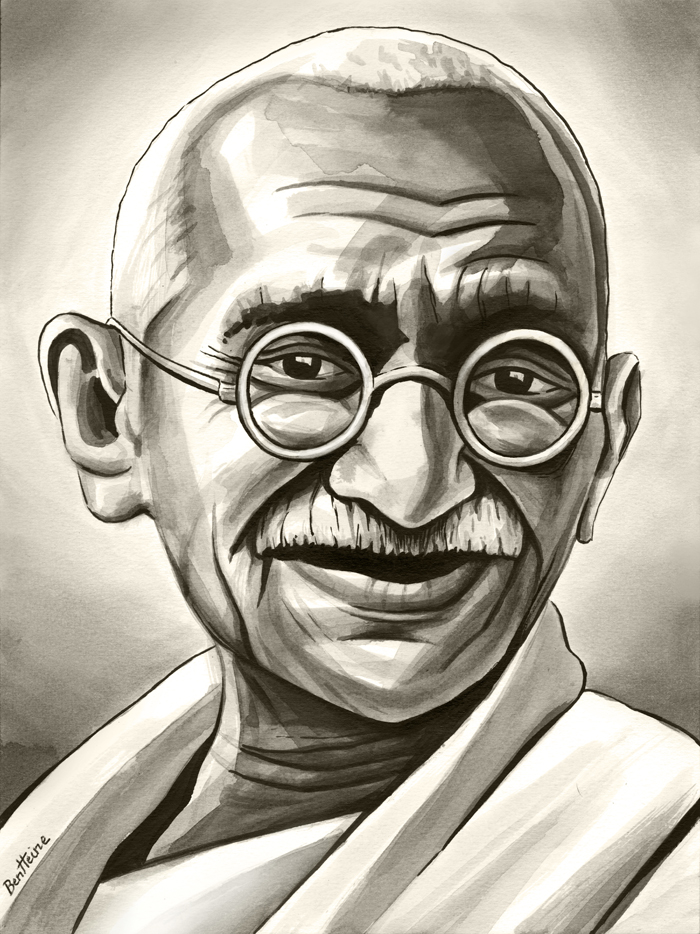One of the most influential men the world has ever produced was Mahatma Mohandas Gandhi, the father of modern India. His life and thought were the quintessence of peace and non-violence even in the face of provocation.
It was therefore not surprising that his name came up again during a recent study in nonviolent communication, part of which was presented to the Nigerian Medical Students Association (NIMSA) at the College of Health Sciences, University of Ilorin.
Marshall Rosenberg, who developed Nonviolent Communication, was influenced by Gandhi. Ghandi himself was influenced by the much misunderstood Prophet Muhammad, as the former stated in an article he wrote in “The Young India” of 1924.
Worried by the disruptive conflicts that ravage the mutually antagonistic dozens of various unions in the health sector, the thoughtful students organised a Workshop on Conflict Resolution and Peacebuilding in collaboration with the Centre for Peace and Strategic Studies, University of Ilorin.
The students wanted to be equipped with the appropriate skills of dealing with co-health workers in such a way that there would be healthy relationships among the various stakeholders. The authorities of the college were so impressed that the Provost, Prof. A. W. R. Johnson, and other lecturers and consultants, including a Professor of Peadiatrics and Child Health, Olugbenga Mokuolu, attended the workshop.
As part of my presentation on “Promoting Peace and Preventing Conflict: Nonviolent Communication as a Paradigm”, the name of Gandhi’s name surfaced through his concept of “Ahimsa”, a potent panacea for Nigeria’s ills.
Ahimsa is simply defined as “the overflowing love that arises when ill-will, anger and hate have subsided from the heart”. It is a Sanskrit word that basically means “cause no injury, do no harm”, a tenet of major Indian and virtually all religions.
Despite our pretences evident in our many anachronisms, including “men of God” who are agents of Lucifer, what defines many Nigerians is “himsa” (i.e. “injury or harm”) which “ahimsa” negates through the prefix “a”. In other words, we are neck-deep in causing ourselves harm and injury.
As Nigerians, we are inter-connected and inter-dependent in such a way that our survival depends on one another, Hausa, Igbo and Yoruba and all. As it is possible to pass through school without recording any failure if one sets oneself doggedly to it, it is also possible to pass through life without intentionally causing anyone injury or harm if we commit ourselves to it by banishing resentment from our hearts and making love to overflow, to even reach our detractors and those we perceive as our enemies.
It is the lack of “ahimsa” that makes Nigerians kill one another with impunity. It is lack of ahimsa, which unfortunately has deep roots in the netizens whose values and taste are constructed by the social media, not by their ever-busy parents, that is our major problem.
As the late Madiba, Tata Nelson Rolihlalah Mandela said, “Resentment is like drinking poison and then hoping it will kill your enemies.” Those who want to destroy others ultimately end up destroying themselves.
Ahimsa is all about love and Nigerians need to love one another regardless of their religious, ethnic and political affiliations. The fundamental teaching of all religions is ahimsa or love for all as fellow travelers in the journey of life. There is unity in diversity and there is convergence in our seeming divergence.
This convergence is evident in the same message we have in many religions. For instance, in Buddism, it is stated, “Treat not others in ways that you yourself would find hurtful” (Udana-Varga 5:18) whereas in Judaism, it is clearly expressed, “What is hateful to you, do not do to your neighbor. This is the whole Torah; all the rest is commentary” (Hillel, Talmud, Shabbat 31a).
While Christianity offers us that “In everything, do to others as you would have them do to you; for this is the law and the prophets” (Jesus, Matthew 7:12), in Islam, it is stressed, “None of you truly believes until you wish for others what you wish for yourself” (Muhammad, Hadith).
We share more in common than we are even ready to admit. It is therefore time for ahimsa; it time for love to overflow.






Leave a Reply